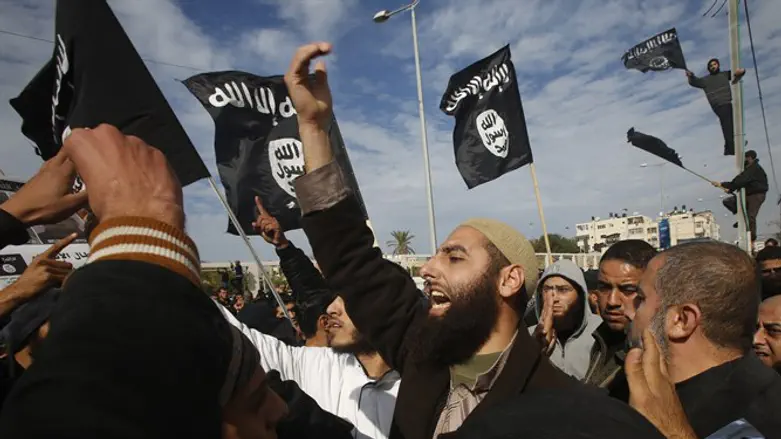
President Trump made his intention to destroy Islamic State crystal clear in his stirring address to the Congress on 28 February:
"As promised, I directed the Department of Defense to develop a plan to demolish and destroy ISIS -- a network of lawless savages that have slaughtered Muslims and Christians, and men, women, and children of all faiths and beliefs. We will work with our allies, including our friends and allies in the Muslim world, to extinguish this vile enemy from our planet.”
The Department of Defense plan had already been delivered to members of the National Security Council's Principals Committee - and Secretary of Defense Jim Mattis was due to brief the committee on 27 February.
Whether this plan recommends co-operation with Russia still remains under wraps.
Certainly President Obama’s decision in September 2014 to degrade and destroy Islamic State by forming a broad international coalition of 68 States without:
Including Russia and first securing a Security Council resolution endorsing such action
has proved both catastrophic and very expensive.
The State Department trumpeted that the breadth and diversity of America’s coalition partners demonstrated the global and unified nature of Obama’s endeavour.
Yet Islamic State today remains undefeated in Syria and Iraq.
Support for – and pledges of allegiance to – Islamic State by over 30 radical Islamic terrorist groups world-wide are creating horrific humanitarian problems – some far removed from the Middle East.
Defeating Islamic State in Iraq and Syria will see these “lawless savages” joining such disparate groups in their drive to establish the restoration of the Caliphate and the implementation of Sharia law world-wide.
Members of the US-led Coalition have not been contributing their fair share towards dealing with Islamic State – leaving the burden to fall squarely on America.
Australian Prime Minister – Malcolm Turnbull – declared last week that Australia was in fact the second largest international contributor to the US led coalition after the United States – shaming NATO countries like Germany, France and the United Kingdom and Middle East members Saudi Arabia, Qatar and United Arab Emirates.
The remaining 125 UN member States have escaped sharing the cost and responsibility of confronting and defeating Islamic State.
Trump’s reprimand of NATO would indicate he considers the Obama-led coalition has been a very bad deal for America.
Trump can rectify this situation by jointly co-sponsoring with Putin a United Nations Security Council resolution authorising the use of force against Islamic State under Chapter V11 of the UN Charter.
Russia and America have previously expressed their willingness to involve the Security Council.
Russian Foreign Minister Sergei Lavrov made this clear on 18 November 2015:
“The Security Council needs to give preferential attention to the task of creating a solid legal foundation for the fight against this evil [Islamic State] and for the mobilization of an actual global coalition in response to this common uncompromising challenge for us all.”
President Obama preached a similar mantra in St Petersburg on 6 September 2013:
“And I respect those who are concerned about setting precedents of action outside of a U.N. Security Council resolution. I would greatly prefer working through multilateral channels and through the United Nations to get this done.”
Mentioning any relationship with Russia is a very sensitive issue in American politics today.
However Trump may well have had Russia in mind when he told Congress:
“America is willing to find new friends, and to forge new partnerships, where shared interests align. We want harmony and stability, not war and conflict.”
Defeating Islamic State is a shared interest of Trump and Putin.
Co-operation in the United Nations Security Council will materially advance that objective.
